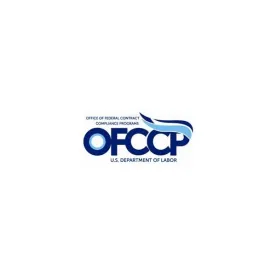Federal contractors and subcontractors have numerous affirmative action obligations and only so much time each day to devote to compliance. As a result, some requirements may tend to fall by the wayside as contractors focus on the more critical issues of ensuring equal employment opportunities in matters such as hiring, promotions, and pay. Even the smallest of the technical regulatory obligations, however, are important and serve a purpose—and, in fact, they can significantly enhance contractors’ affirmative action efforts by requiring regular, critical review and analysis of personnel practices. Likewise, compliance with recordkeeping requirements can assist contractors in defending against claims of discrimination through documentation of the business reasons behind employment decisions. When contractors are selected for compliance reviews by the Office of Federal Contract Compliance Programs (OFCCP), the agency does not limit its reviews to identifying unlawful discrimination. Rather, the agency ensures that contractors are complying with all of their affirmative action obligations. In fact, OFCCP is now conducting focused reviews that provide the agency with the opportunity to hone in on many of the more technical aspects of compliance.
While the majority of OFCCP’s compliance and focused reviews end with a closure letter and notice of compliance, some reviews result in a contractor and OFCCP entering into a conciliation agreement. A conciliation agreement is a formal agreement signed by OFCCP and a contractor’s top official that identifies affirmative action compliance violations uncovered during a review and details the contractor’s specific remedies.
OFCCP posts conciliation agreements in its Freedom of Information Act library. These agreements can take one of two forms: financial or non-financial. Financial conciliation agreements involve monetary violations alleged by OFCCP that can be remedied through back pay, interest, or current salary adjustments and other make-whole relief; non-financial conciliation agreements resolve alleged violations that are nonmonetary or “technical” in nature. For example, if OFCCP alleges there to be discrimination in hiring or compensation, a financial conciliation agreement would be utilized; however, if the only allegations are for nonmonetary violations of the regulations, the parties would then enter into a non-financial conciliation agreement. Nonmonetary, technical violations are also routinely found in financial conciliation agreements. However, monetary violations are not included in non-financial conciliation agreements.
Financial conciliation agreements are typically the subject of OFCCP press releases and articles from various employer and contractor-related services. On October 19, 2020, OFCCP announced that it had recovered $35.6 million in fiscal year (FY) 2020 and that it had responded to a record number of compliance assistance inquiries to its help desk. Although non-financial conciliation agreements are not nearly as “splashy” or “eye-catching” as settlements with dollar signs in the titles of news items, the information provided in those agreements can still offer contractors a glimpse into OFCCP’s considerations and where to focus compliance efforts before, during, and after a review is scheduled. This article summarizes the non-financial conciliation agreements published for FY 2020, with a helpful eye toward reminding federal contactors about their myriad regulatory obligations and where attention to improvement may be fruitful.
Absent special circumstances, every conciliation agreement entered into—whether financial or nonfinancial—includes provisions for some form of progress reporting to OFCCP. Thus, when entering into conciliation agreements, contractors should be prepared to provide evidence to OFCCP for anywhere from six months to two or three years showing that violations have been remedied. Some remedial actions are more involved (and expensive) than others. Some may require only that the contractor update or change its policies or practices, while other remedies may require the contractor to invest time and money into information systems or partnerships with third parties.
OFCCP entered into 75 non-financial conciliation agreements in FY 2020, down from 88 in FY 2019. FY 2020’s second quarter saw the highest number of nonfinancial settlements (32); the third quarter’s settlement total (18) was next highest, and it was followed by the first quarter’s total (15) and the fourth quarter’s total (10). (Note: At the time this article was written, OFCCP had not published any non-financial conciliation agreements from September 2020, the final month of FY 2020.) The Mid-Atlantic Region entered into the most non-financial conciliation agreements in FY 2020, while the Southwest and Rocky Mountain Region entered into the least:
-
Mid-Atlantic (24 Agreements)
-
Pacific (17 Agreements)
-
Southeast (14 Agreements)
-
Midwest (8 Agreements)
-
Northeast (8 Agreements)
-
Southwest and Rocky Mountain (4 Agreements)
In FY 2020, the most common issues addressed in nonfinancial conciliation agreements were related to outreach and recruitment, recordkeeping, and job postings. Outreach and recruitment violations were resolved in approximately two-thirds of the FY 2020 non-financial conciliation agreements. Nearly all of these concerned outreach and recruitment to individuals with disabilities and protected veterans, which is not surprising, given OFCCP’s announced, enhanced focus on ensuring contractor compliance with affirmative action for protected veterans and individuals with disabilities. These violations typically relate to a company’s failure to conduct outreach or recruitment that OFCCP deemed sufficient or resulted from a company’s failure to annually evaluate and assess its existing outreach or recruitment efforts.
Outreach and Recruitment
Federal contractors are required to engage in appropriate outreach and recruitment efforts that are reasonably designed to recruit qualified females, minorities, individuals with disabilities, and protected veterans. Examples of appropriate outreach and recruitment are provided in the regulations, OFCCP’s employment referral resource directory, and in compliance assistance documents on OFCCP’s websites for protected veterans and individuals with disabilities. A review of violations and remedies in non-financial conciliation agreements also offer examples of practices that contractors can engage in. These include, but are not limited to:
-
participating in or hosting job fairs that are focused on recruiting qualified females, minorities, individuals with disabilities, and/or protected veterans;
-
entering into formal, written relationships with organizations geared toward the training or referral of individuals with disabilities or protected veterans who could be job applicants with relevant skills and experience;
-
creating an internship program for students with disabilities from local colleges and universities;
-
engaging with the Workforce Recruitment Program; and/or
-
connecting with local disability or veteran service organizations.
Recordkeeping and Job Listings
Recordkeeping violations were the next most common violation found, addressed in over half of the FY 2020 non-financial conciliation agreements. About one-third of the agreements included violations for not listing external job openings with the appropriate state or local employment service delivery system (ESDS), not advising the ESDS of federal contractor status, failing to seek priority referral of protected veterans, and not providing contact information for hiring managers at all contractors’ locations within a state. Depending on the size of a company and the type of documentation created, applicable statutes may require information to be retained for one to three years, or longer, if a compliance review or litigation is ongoing. This can apply to the creation of required documents, such as self-identification forms, or the retention of documents if created, such as interview notes.
Pay Transparency
Also of note is an FY 2020 non-financial conciliation agreement resulting from a complaint investigation in which OFCCP alleged that a company had maintained a policy prohibiting and/or discouraging employees from inquiring about, discussing, or disclosing their compensation or the compensation of others. Contractors are reminded that OFCCP enforces pay transparency regulations that protect applicants and employees who engage in inquiries, discussions, and disclosures about compensation. (See OFCCP’s Pay Transparency Regulations Frequently Asked Questions.) Contractors must conspicuously post the Pay Transparency Nondiscrimination Provision in places where applicants and employees can see it, as well as include the provision in employee handbooks, if any.
Additional Conciliation Agreement Compliance Issues
Below are additional examples taken from OFCCP’s FY 2020 non-financial conciliation agreements regarding recordkeeping and other issues. Contractors may want to consider whether these examples apply to their businesses and, if so, whether appropriate actions are being taken to comply with applicable regulations. These examples include:
-
providing race, gender, disability, and protected veteran self-identification forms at the time of application and post-offer;
-
inviting applicants and new hires to self-identify disability status using the mandatory Form CC-305, keeping records of self-identification responses for applicants and employees, and tracking applicant and hire demographic information;
-
surveying the employee workforce every five years to comply with the disability regulations, along with sending a reminder about self-identification at least one time in between;
-
keeping copies of applications and other personnel and employment records, including requests for accommodations;
-
keeping copies of any pre- or post-offer testing records;
-
tracking applicants and hires for the data collection tables required for Affirmative Action Programs (AAPs) for individuals with disabilities and protected veterans;
-
timely preparing AAPs and maintaining current and prior year AAPs;
-
ensuring that all necessary groups (e.g., females and minorities, individuals with disabilities, and protected veterans) are included in AAPs and that necessary components are incorporated, including, but not limited to, designating a company official to ensure effective implementation of AAPs, discussing auditing systems to measure effectiveness of outreach, setting a hiring benchmark under the Vietnam Era Veterans’ Readjustment Assistance Act (VEVRAA), and preparing and evaluating utilization and availability under Section 503 of the Rehabilitation Act;
-
conducting annual disparity analyses of applicants, hires, promotions, and employment terminations data;
-
sending necessary notifications, if applicable, to unions and posting the “Notification of Employee Rights Under Federal Labor Laws” poster;
-
conducting equal employment opportunity (EEO) training for all employees involved in recruitment and selection decisions and on pay transparency requirements;
-
analyzing compensation processes annually;
-
sending notices to vendors/suppliers and recruitment sources;
-
reviewing all physical and mental job qualification standards to ensure they are based on legitimate business requirements and do not unlawfully screen out individuals with disabilities;
-
including the appropriate equal opportunity clause in subcontracts and purchase orders;
-
including the appropriate equal employment opportunity tagline in job solicitations and advertisements; and
-
timely filing EEO-1 or VETS-4212 reports.
Other Contractor Compliance Requirements
Below are additional reminders of other “technical” requirements that, while not included in FY 2020 non-financial conciliation agreements, could be appropriately included in such agreements if OFCCP determined compliance was lacking:
-
adopting and posting notices of the contractor’s nondiscrimination policy in conspicuous places available to applicants and employees;
-
posting the U.S. Equal Employment Opportunity Commission’s Equal Employment Opportunity is The Law poster and the poster’s supplement for employees and also including a copy or link to the posters as part of the online application process;
-
posting notice for applicants and employees of the availability of AAPs for protected veterans and disabled persons (without data metrics) for inspection upon request and identifying locations and hours during which AAPs may be reviewed;
-
including, as part of the online application process, a notice to disabled applicants of how to seek a reasonable accommodation, if needed, to participate in the application process;
-
ensuring the company’s anti-harassment policy includes individuals with disabilities and protected veterans;
-
documenting requests for reasonable accommodation (and adopting a reasonable accommodation policy);
-
maintaining a separate file for individuals who self-identify as disabled or protected veterans; and
-
maintaining all applicant and employee medical information and history separately from personnel information and treating such information as confidential.
Technical violations of affirmative action compliance requirements are the low-hanging fruit in OFCCP’s compliance reviews, but can be readily identified during contractors’ annual assessments of personnel processes. Correction of these nondiscrimination and nonfinancial requirements pre-audit makes for more speedy closure of OFCCP compliance reviews, and adherence to these “technical” requirements also serves to enhance contractors’ affirmative action efforts.





 />i
/>i
